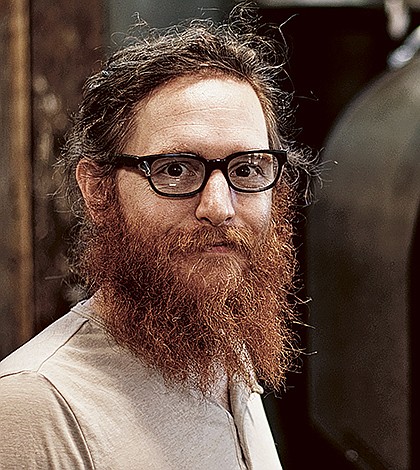- January 1, 2025
-
-
Loading

Loading

When visitors open the door to the Plant Street Market, a world of fragrance awaits. Fresh-squeezed juice, aromatic herbs and essential oils are easy to identify, but what about the smell of sweet, burnt popcorn?
Don’t let your nose deceive you. That new smell at the market is a sign that Axum Coffee Roasting is open for business.
Axum Coffee, affiliated with Mosaic Church, is downtown Winter Garden’s coffee shop that donates all of its profits to global causes. This summer, in order to expand its operations and diminish its reliance on a separate roasting, the business has branched out to roast its beans at the market.
“It was the right time for us to take a huge leap to become a roaster,” co-manager Suzanne Bernal said. “Our mission is still to make a lot of money to give a lot of money away.”
Roasting its coffee will allow Axum to have more control over its products, and it will cut costs long-term. For now, bagged beans are available at the market, and soon, all of Axum’s coffee will come from this source. The roaster will eventually also supply all coffee for House Blend Cafe and Axum kiosks at Florida Hospital and the Dr. Phillips YMCA.
Small cups of coffee and espresso-based beverages are also available at the market, but don’t expect to order a complex drink with flavors or syrups.
“This is kind of for coffee purists,” Bernal said. “We’re keeping it simple so people can discover what coffee should taste like.”
JOURNEY OF THE BEAN
Coffee is a highly labor-intensive product. Laborers hand-pick the cherries, going through rows of trees several times at once and only selecting cherries ready for harvest. The cherries are processed in the sun or in water, and then the shell is removed and the internal bean is cleaned.
Coffee grows in tropical climates at high altitudes. Most regions get just one harvest a year. Changes in soil chemistry, eruption of volcanic ash and other environmental shifts can affect harvest success.
“Working conditions are not always so great; they get paid very little,” Bernal said. “It’s incredible that people pay so little for a pound of coffee.”
Bernal hopes all of Axum’s coffee will eventually be fairly sourced and that the business will be able to start partnerships with global farms to ensure fair wages.
The Axum roastery gets its green coffee beans from Cafe Imports, a company based in Minnesota, with a mission statement including increasing the quality of life for coffee farmers, decreasing negative environmental impact and sharing a passion for coffee through education.
Cafe Imports’ green coffees come from Brazil, Colombia, Costa Rica, Burundi and Congo. They are sent to Axum for roasting at the market. Axum’s first shipment was 1,400 pounds.
“It’s amazing how quickly you can fly through that,” Bernal said.
THE MAD SCIENTIST
Neal Faul is Axum’s primary roasting expert. He experimented for years with a small at-home roaster before Axum took up residence at the market.
“You have to be able to apply the technical knowledge you have, while at the same time, looking at the process in a creative and dynamic way so as to bring out the best in all of your coffees,” Faul said.
Axum purchased a Probat roaster, which is a German drum roaster that uses a rotating cylinder to mix the beans. Heated air moves through the drum and removes the roasting byproduct. Drum roasters are used to roast about 70% of the coffee in North America and are ideal for dark roasts.
“Germans know how to make good machines, so it’s kind of like a car,” Bernal said. “I was basically told that if you can get a Probat, you get a Probat … which is kind of the Mercedes of roasting.”
For about eight years, Faul has spent as much time as possible with various high-end roasters and baristas. This provided much of the experience he needed to prepare for roasting with the Probat, but he recently went to Minnesota for training at Cafe Imports.
“Neal’s like a gem; you don’t always have people (who) are that interested and passionate about coffee, and talented,” Bernal said. “He’s kind of a mad-scientist type. He’s a musician, also. He’s the perfect coffee roaster—you’ve got to have art and science in it.”
Faul said the roastery will contribute to Axum’s mission by allowing the business to put more funds into its philanthropic partnerships, engage the community and build relationships with coffee farmers.
“We are also uniquely able to educate the broader public about different coffees, brewing methods and processing styles, which will then hopefully drive the conversation back to who are are as a company and what we strive to accomplish,” Faul said.
—
The coffee plant was first discovered in present-day Ethiopia. Legend has it that a goatherd named Kaldi noticed his goats prancing with vigor after eating the small red berries of a local shrub. Kaldi decided to try the berries too, and felt a rise in his own energy level. Today, coffee is the second-most traded commodity in the world.
Axum is a city in Ethiopia, where co-managers Suzanne and Mathias Bernal traveled years ago and were inspired to launch a coffee-centered business whose profits could be used to alleviate poverty and injustice worldwide.
—
Contact Catherine Sinclair at [email protected].